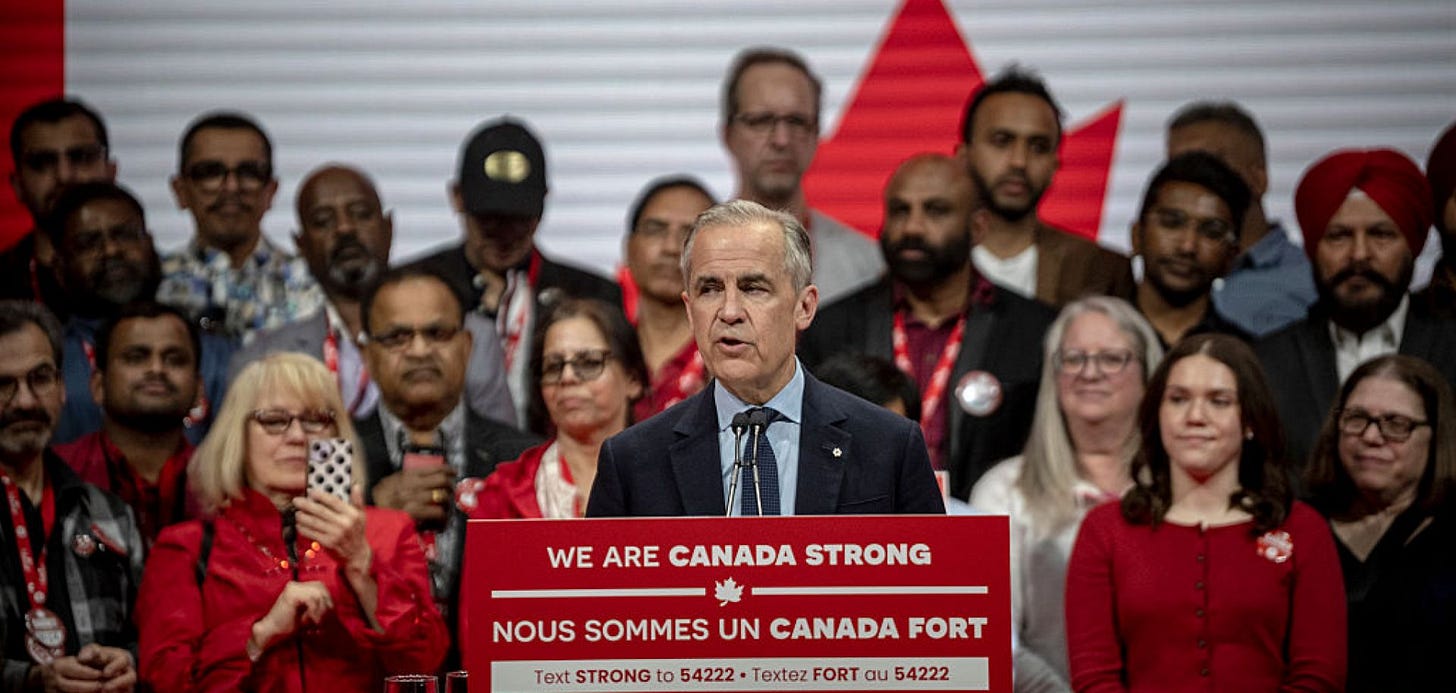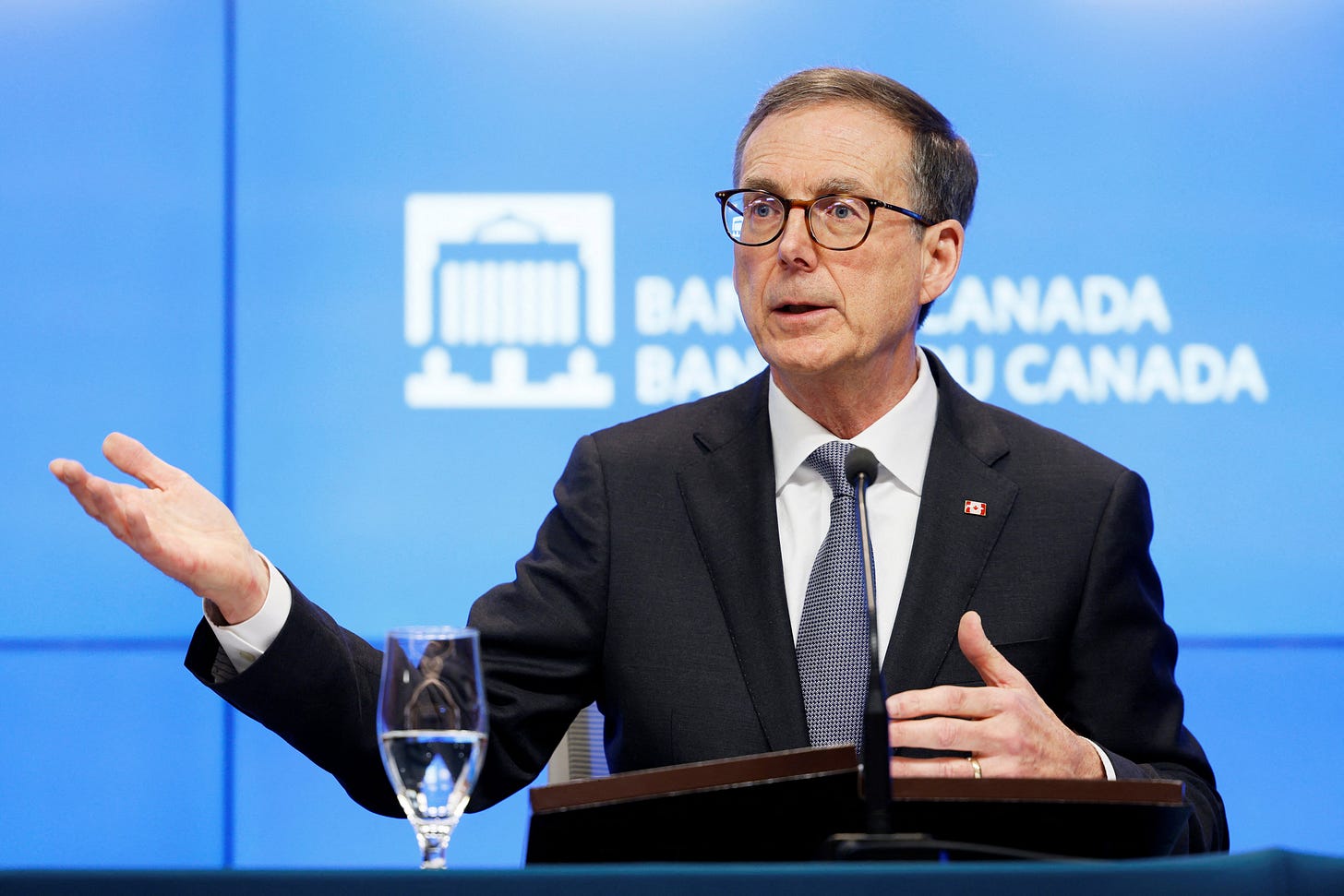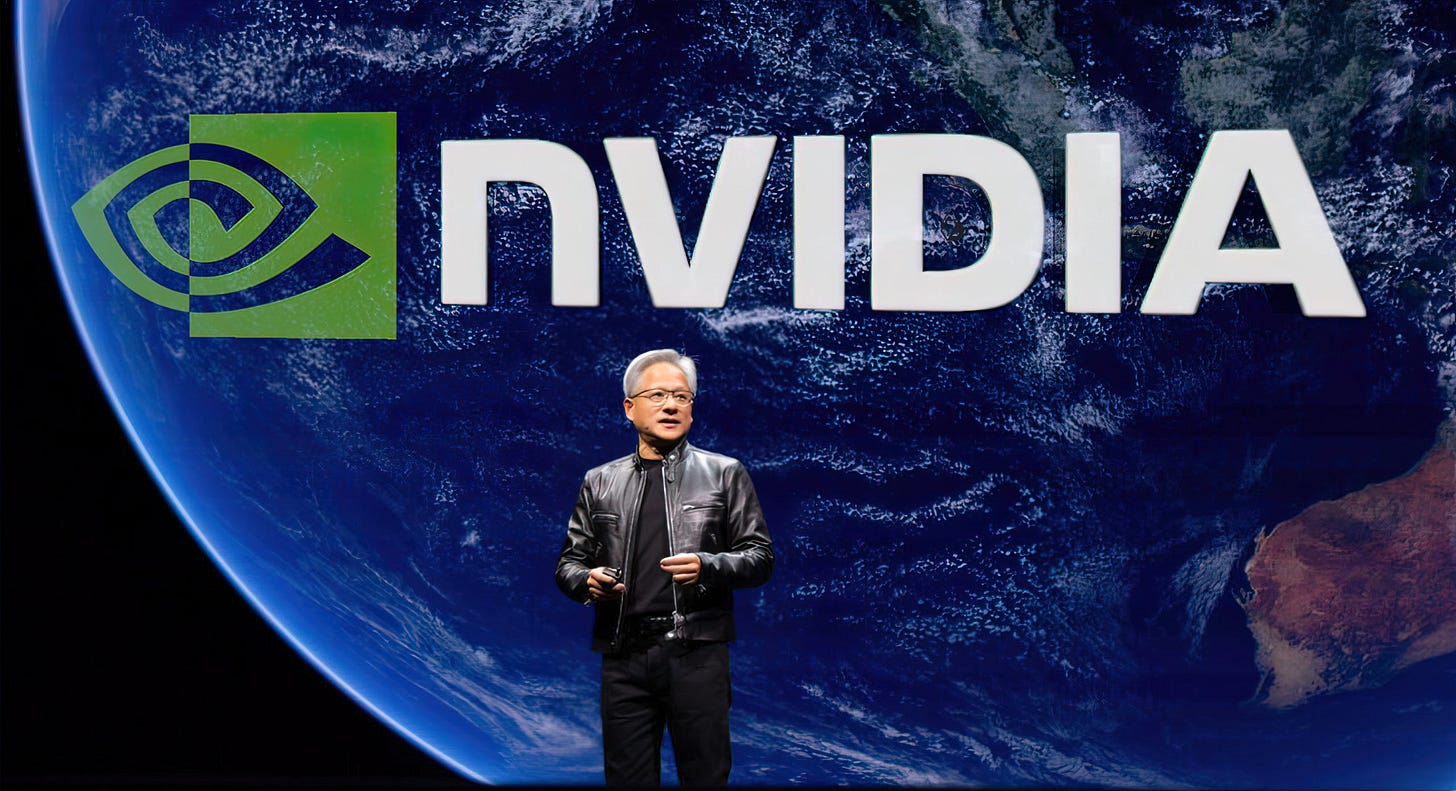Good morning, it’s Thursday, October 30th. In today’s news, Indigenous land claims threaten private property rights across Canada, Liberals push Canada toward a Christmas election to gain more control, The Bank of Canada quietly confirms our standard of living is falling, Liberal government insists the internet censorship bill won’t be used for internet censorship, and much more.
First time reading the daily blend? Sign up here.
From Richmond to Ottawa: Indigenous Land Claims Threaten Private Property Rights Across Canada
A Richmond, B.C. man who’s owned his home since 1975 claims he has just been told his mortgage will not be renewed — because the B.C. Supreme Court granted title of his land to the Cowichan Tribe. After nearly 50 years of paying taxes, maintaining his home, and contributing to the community, his lender has informed him that his property no longer qualifies as secure collateral. The reason? His land title is now contested under an Indigenous land claim.
“I’ve owned my land for decades,” he said. “I’m not giving it up without a fight.” The homeowner received the news by letter and said his mortgage company refused renewal due to the uncertainty surrounding ownership. “I paid taxes, I paid for my place. Now, lo and behold, I don’t own it. Not fair.”
The court ruling in B.C. marks a historic precedent — and now it’s spreading.
In Quebec, the Kitigan Zibi Anishinabeg First Nation has launched a sweeping title claim covering major portions of western Quebec, including parts of Ottawa, Gatineau Park, and islands in the Ottawa River. The First Nation is also suing the governments of Canada and Quebec, along with Hydro-Québec and the National Capital Commission, for $5 billion.
Chief Jean-Guy Whiteduck says the move is about ensuring Indigenous control over water, wildlife, and forestry on traditional territory. “Billions of dollars have been taken out of our lands with limited return to our community,” he said, emphasizing that reconciliation must include management authority over these lands.
Whiteduck insists the claim targets only government-managed lands — but after the Richmond case, private homeowners are justifiably nervous. The precedent has now been set: courts can recognize Indigenous title claims that override private property rights, mortgages, and land titles.
What started as a localized land dispute has become a constitutional earthquake. Ottawa’s repeated acknowledgements of “unceded territory” are now being cited in courtrooms to justify ownership claims — and governments have no clear strategy to defend private citizens caught in the middle.
This isn’t reconciliation. It’s expropriation by legal stealth. And for the first time in Canadian history, ordinary homeowners are paying the price.
Liberals Push Canada Toward a Christmas Election—Is It a Calculated Move to Secure a Majority?
What’s unfolding in Ottawa isn’t just budget brinkmanship—it looks like a power play. Prime Minister Mark Carney’s Liberals are walking Canada straight into another election, framing it as an unavoidable crisis while blaming Pierre Poilievre for “forcing” it. In reality, this looks like a deliberate move to seize majority control before their fragile minority collapses.
With the budget vote now a confidence motion, Carney’s team is daring the Conservatives to oppose it—knowing full well that if an election is triggered, they can paint Poilievre as reckless and “anti-stability.” Behind the scenes, Liberal strategists likely see a political opening: inflation easing slightly, interest rates down, the opposition divided, and voters fatigued from back-to-back elections.
If the Liberals win a majority, it would consolidate power under Carney, giving him free rein to expand spending, deepen state control over the economy, and push through new green and regulatory agendas without parliamentary resistance.
For Poilievre, it’s an existential moment. If he can’t win or at least hold the Liberals to another minority, internal pressure will mount within his caucus. Some in Conservative circles are already whispering that Ontario Premier Doug Ford could attempt to position himself as a “unifier” on the right—stepping into the federal arena if Poilievre falters. The primary concern: after years of pro-Liberal support, a Ford-led Conservative Party could end up as nothing more than Liberal Party 2.0.
So, despite the mainstream media spin, I don’t believe this is about avoiding an election. It’s about the Liberals manufacturing one on their own terms, using fiscal chaos as cover for total control.
Canada’s Shrinking Future: The Bank of Canada Quietly Confirms Our Standard of Living Is Falling
When the head of the Bank of Canada admits the country’s standard of living is on a “lower path,” that should be front-page news. But it won’t be—because it’s easier to pretend the problem is temporary than to admit it’s structural.
This week, Governor Tiff Macklem delivered a sobering message: even as the Bank cut its key interest rate to 2.25%, the Canadian economy is fundamentally weaker than it was just a few years ago. The culprit, he said, is the ongoing damage caused by U.S. tariffs, global trade instability, and the structural erosion of Canada’s productive capacity. “The weakness we’re seeing in the Canadian economy is more than a cyclical downturn,” Macklem said. “It’s also a structural adjustment.”
In plain English: Canada isn’t just slowing down—it’s shrinking. Not in population, but in real output per person. Tariffs, regulatory uncertainty, and declining investment have combined to permanently reduce how much wealth Canadians can produce. That means lower productivity, lower wages, and ultimately, a lower standard of living.
Macklem’s follow-up comments were even more blunt. “Unless something else changes,” he said, “our incomes will be lower than they otherwise would have been.” The economy will grow, yes—but along a weaker trajectory than before. He called it “the old path” versus “the new path,” with the new one trending down from where it should have been.
What can be done? According to Macklem, not much—at least not by the Bank of Canada. Monetary policy can’t create productivity. Cutting rates might cushion the fall, but it won’t rebuild the foundations of growth. “We need to get our productivity growth up,” he said, warning that unless the country makes deep structural reforms, Canadians will be poorer relative to their past and to their peers abroad.
That’s the quiet confession at the heart of this economic outlook: Canada’s prosperity problem isn’t about inflation anymore—it’s about stagnation. Years of political complacency, anti-business policy, and uncompetitive taxation have caught up with us.
When even the central bank admits that our future wealth depends on fixing what Ottawa broke, it’s not a forecast—it’s a warning. Source and Source.
Liberal Government: Bill Allowing Feds to Block Internet Access Won’t Be Used for Censorship
Bill C-8 would allow the Canadian government to order telecom providers like Bell, Rogers, and Telus to block services or deny individuals access to the internet or phone networks. When pressed, the Liberals claim the bill’s purpose is to shield Canada’s telecommunications system from cyber threats, including hackers, ransomware, and foreign interference. Government officials insist it’s not intended to censor Canadians’ speech. Yet the bill’s language is extremely broad, giving “sweeping powers” to the Industry Minister with minimal oversight, no warrant requirement, and almost no safeguards.
Critics—including Conservative MPs and the Privacy Commissioner—warn that these powers could easily be abused to silence individuals under the pretext of cybersecurity, raising serious questions about Charter rights, necessity, proportionality, and the risk of government overreach. More
Headline
Body.
IDF: Truce Resumes in Gaza after Hamas Attack and Israeli Reprisals - As part of its retaliation, the IDF said it targeted more than 30 high-ranking commanders of various terrorist groups operating in Gaza. More
Deadliest-Ever Police Raid on Rio de Janeiro Gang Leaves at Least 64 Dead - The raging gun battles erupted just days before the picturesque seaside metropolis is set to host pre-COP30 events ahead of this year’s UN Climate Change Conference. More
More Than a Dozen Palestine Action Protests are Planned Next Month Despite Ban on Group - Protests against the ban on Palestine Action are set for 18 towns and cities in the UK next month, organized by Defend Our Juries. More
Russian Snipers Are Using Canadian Rifles, Despite Sanctions - More
Hurricane Melissa is Responsible for Dozens of Deaths as Cuba, Haiti, and Jamaica Assess the Severe Damage - More
Nvidia Becomes the First $5 Trillion Company
Nvidia has become the first $5 trillion company, fueled by skyrocketing demand for its AI-capable GPUs powering technologies like ChatGPT. The company’s market value now surpasses the GDP of India, Japan, and the UK combined. CEO Jensen Huang downplays bubble concerns, pointing to AI’s growing profitability, while Nvidia continues massive investments, including $500 billion in chip orders, $100 billion for OpenAI, partnerships on 6G tech with Nokia, and new AI supercomputers with the U.S. Department of Energy. More
Bank of Canada Lowers Key Interest Rate to 2.25 Percent - More
Another Major Outage at Amazon and Microsoft Azure Takes Down Banks, Airlines, Office 365, and Even Minecraft - More
Paramount to Cut 2,000 Jobs Following Merger With Skydance - More
Scientists Unlock Secrets of the Building Blocks of the Universe
Scientists at Indiana University have helped make a breakthrough in one of the universe’s biggest mysteries: why there’s matter instead of nothing. Using data from two global neutrino experiments—NOvA in the U.S. and T2K in Japan—researchers studied how neutrinos, tiny nearly massless particles, change “flavours” as they travel. Their results suggest neutrinos and their antimatter counterparts behave differently, breaking the expected symmetry and hinting at why matter survived the Big Bang while antimatter vanished.
By combining these two experiments—one with a long-distance beam through the Earth, the other with a shorter but more intense beam—scientists achieved unprecedented precision in measuring neutrino behaviour. The discovery not only brings us closer to understanding why stars, planets, and life exist, but it also fuels new technologies, trains the next generation of physicists, and demonstrates the power of international scientific collaboration. More
“Mystery Molecules” Found in Dogs Could Help Humans Live Longer, Healthier Lives - More
Study: Listening to or Playing Music Over 75 Linked to 39% Reduction in Dementia Risk - More
Blue Jays Are One Win Away From Winning the World Series
The Toronto Blue Jays are one win from a World Series title after a 6-1 Game 5 victory over the Los Angeles Dodgers, powered by rookie Trey Yesavage’s record-setting 12 strikeouts and back-to-back leadoff homers from Davis Schneider and Vladimir Guerrero Jr.; the series moves back to Toronto for Game 6 on Friday with Kevin Gausman pitching. More
‘Devastating’ Funding Crisis in Canadian Sports is Reaching a Breaking Point - Canadian Olympic athletes in sports like luge, bobsleigh, and speed skating are facing skyrocketing costs and stagnant federal funding, forcing many to pay huge fees or risk ending their careers despite international success. More
Lions Sign Pro Bowler Aidan Hutchinson to Extension Reportedly Worth $180 Million Over 4 Years - More
Dictionary.com Reveals ‘67’ is its 2025 Word of the Year - Some say it can be interpreted as another way of saying “so-so,” “maybe this,” or “maybe that,” the dictionary states. Others say it is purposefully nonsensical and all about being in on the absurdity. More
WWI Soldiers’ Messages in a Bottle Found on an Australian Beach More Than 100 Years Later
Neuroscience Startup Unveils 6-Pound Smartphone Case Designed to Slash Screen Time by Half
On This Day in 1938, Orson Welles’ radio adaptation of H.G. Wells’ The War of the Worlds triggered mass hysteria, with listeners convinced that a real Martian invasion was unfolding.



















I’d argue that the dissolution of home/land ownership is a continuation of the erosion of the Canadian right to own property as per s.1.a) of the 1960 Canadian Bill of Rights, which still has force in law.
Regarding the later Charter of Rights and Freedoms,
“The first parliamentary committee to have its sittings televised, it was petitioned by 914 individuals and 294 groups. It sat for more than 65 days. Largely because of its deliberations, the first Charter was significantly redrafted five times. The revisions included adding provisions on Indigenous peoples’ rights; sexual equality; and equal rights for the disabled. The Conservative Party called for the addition of property rights. The Liberals rejected this proposal because of the opposition to it by their allies, the NDP.” https://www.thecanadianencyclopedia.ca/en/article/patriation-of-the-constitution
“… a young Fabian, having just returned home from his conditioning under Harold Laski’s mentorship at the London School of Economics was working at his first job in the Privy Council Office (PCO) under the watch of Rhodes Scholar and Privy Council Clerk Norman Robertson. That young Fabian went by the name Pierre Elliot Trudeau [7].”
https://canadianpatriot.org/2022/01/27/origins-of-deep-state-part2/
How UNDRIP is playing out in BC right now should be very concerning to everyone who owns property. Now UNDRIP is legally non-binding internationally, but BC passed DRIPA in 2019 and can guarantee very few were paying attention (just happened that I was following a couple of people who were speaking out back then, we sold and got the heck out of BC while we could). And I believe most still don't understand the full implications of the court ruling, you see if Indigenous title is recognized over fee-simple title, The First Nations Fiscal Management Act allows First Nations to tax the property as well! Isn't that just crazy? I imagine this will he tied up in the courts for some time, continuing the chaos.